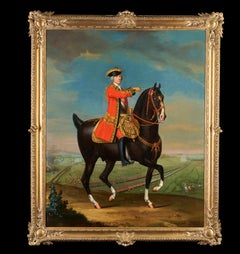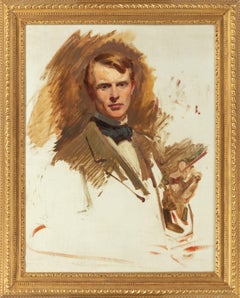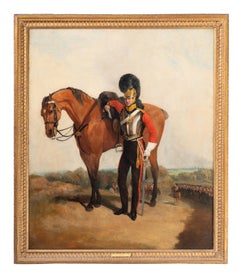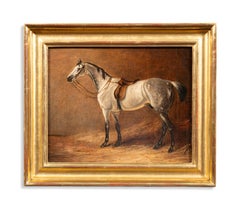Want more images or videos?
Request additional images or videos from the seller
1 of 3
UnknownPortrait of King Charles I (1600-1649), in a black slashed doublet
Price:$24,248.29
$33,766.78List Price
About the Item
- Dimensions:Height: 63 in (160.02 cm)Width: 49 in (124.46 cm)
- Medium:
- Movement & Style:
- Period:
- Condition:
- Gallery Location:Stoke, GB
- Reference Number:1stDibs: LU446310216972
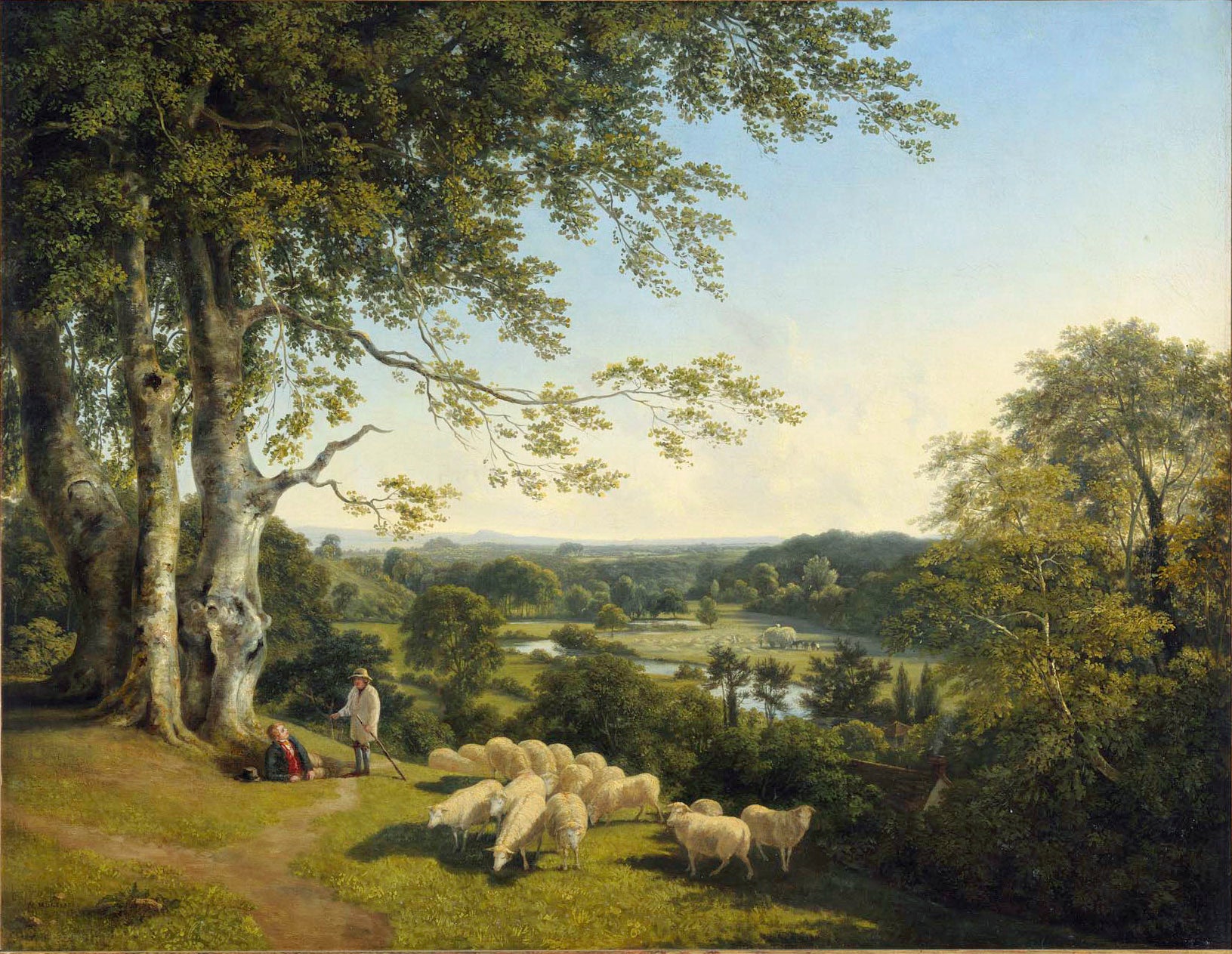
About the Seller
5.0
Recognized Seller
These prestigious sellers are industry leaders and represent the highest echelon for item quality and design.
Platinum Seller
Premium sellers with a 4.7+ rating and 24-hour response times
Established in 2009
1stDibs seller since 2016
195 sales on 1stDibs
Typical response time: 1 hour
Associations
LAPADA - The Association of Arts & Antiques DealersInternational Confederation of Art and Antique Dealers' AssociationsThe British Antique Dealers' Association
Authenticity Guarantee
In the unlikely event there’s an issue with an item’s authenticity, contact us within 1 year for a full refund. DetailsMoney-Back Guarantee
If your item is not as described, is damaged in transit, or does not arrive, contact us within 7 days for a full refund. Details24-Hour Cancellation
You have a 24-hour grace period in which to reconsider your purchase, with no questions asked.Vetted Professional Sellers
Our world-class sellers must adhere to strict standards for service and quality, maintaining the integrity of our listings.Price-Match Guarantee
If you find that a seller listed the same item for a lower price elsewhere, we’ll match it.Trusted Global Delivery
Our best-in-class carrier network provides specialized shipping options worldwide, including custom delivery.You May Also Like
Venus Paolo Fiammingo Paint Oil on canvas Old master 16th Century Italian Art
Located in Riva del Garda, IT
Pauwels Franck, known as Paolo Fiammingo
(Antwerp, 1540 - Venice, 1596)
Venus lying in a landscape
Oil on canvas 116 x 150 cm.
In antique frame 136 x 170 cm.
The work is accompanied by a critical card by Dr. Federica Spadotto
The splendid painting proposed sees portrayed, bare and stretched out on a red brocade cloth in gold sprinkled with roses, a refined and sensual Venus, in a composition with a profound symbolic value, and arriving at the perfect representation of the Renaissance woman who, like Venus, becomes an allegory love, eros, beauty and fertility.
The canvas is part of the prestigious Venetian artistic and cultural environment of the second half of the sixteenth century, whose distinctive distinctive trait can be traced back to its cosmopolitan vocation. This characteristic, as Dr. Spadotto noted in her in-depth study, belongs to the same physiology of the Venetian capital, that is, being a distinctly commercial city located in a strategic point with respect to trade. Representing one of the liveliest ports in the Mediterranean also meant witnessing the continuous passage not only of goods, but of men, ideas, suggestions from distant countries, which influenced not only the taste of their people, but above all art.
This happened thanks to the circulation of prints, as well as pictorial specimens, to which are added the stays of great foreign artists and, above all, the permanence in the capital of a non-negligible number of Dutch, Flemish and German masters.
An emblematic case in this regard comes from Pauwels Franck (Antwerp, 1540 - Venice, 1596), better known as Paolo Fiammingo, who established himself in his native city at a young age - in 1561 a figure enrolled in the Guild of San Luca - and arrived in Venice in 1573. .
He resided in Venice from 1584 until his death, although the stylistic and formal references of some of his works have led critics to believe that in previous years he had undertaken a journey to central Italy, or to Florence and Rome, where he would have metabolized the lively cultural debate that permeated these cities and which, on the other hand, seemed completely absent in Venice.
Here Paolo will be fascinated by the sense of color and by the atmospheric component fixed on the canvas by Jacopo Tintoretto (Venice 1518 - 1594), of which he becomes a collaborator, to undergo, around 1590, the suggestion of Paolo Caliari...
Category
16th Century Old Masters Paintings
Materials
Oil
$30,138 Sale Price
30% Off
H 53.55 in W 66.93 in
18th Century, Antique Oil Painting, Old Master. Portrait of Mother with child.
Located in Berlin, DE
18th century, antique painting, oil on canvas, old master. Mother with child.
Relined canvas.
Stretcher frame also renewed.
Artist unknown.
Category
18th Century Old Masters Figurative Paintings
Materials
Canvas, Oil
$5,677 Sale Price
20% Off
Free Shipping
H 43.31 in W 34.65 in
17th Century, Old Master, "King Basileus Alexander of Macedon Magnus, the Great"
Located in Berlin, DE
Very decorative, 17th century, old master painting, oil on canvas, King Alexander Magnus, the great.
Illustration of two children, putti, with wreaths of flowers on a board (or maus...
Category
17th Century Old Masters Figurative Paintings
Materials
Canvas, Oil
$26,495 Sale Price
20% Off
Free Shipping
H 41.93 in W 52.37 in
Madonna Parrot Paint Oil on table Old master Flemish Follower Master of Parrot
Located in Riva del Garda, IT
'Master of the parrot' (a painter active in Antwerp in the early 16th century, whose name refers to the parrot who always occurs in his paintings) - follower of
Madonna on the throne with child
(With the coat of arms of the client family in the upper part of the composition)
Oil on the table
101 x 62 cm. - In frame 114 x 76 cm.
The beautiful proposed work explains the typical iconographic characters of the painter called 'Master of the parrot', a conventional name used by critics to define an anonymous Dutch author of the 16th century.
More precisely, it is a painter of the southern Netherlands, active in Antwerp around 1530-50, so defined for the unmistakable parrot who often appears in his works of him. In religious iconography the parrot has often been used as a Marian symbol, as it was widespread that its most common verse was "Ave", that is, the greeting of the Archangel Gabriele to Mary at the time of the Annunciation.
Today the idea according to which the name 'master of the parrot' has not referred to a single painter, but rather a group that, based on the stylistic characters, carried out their training at the workshop of Pieter Coecke Van Aelst (Aalst (Aalst is widespread. 1502 - Brussels 1550), creating devotion paintings intended for a bourgeois client and concentrating their activity on a specific topic particularly requested by the contemporary market.
By way of example we can mention the Virgin with the San Diego Museum of Art child where the figures, like our own, are in line, With the mannerist taste for the elegant body proportions that exceed reality, with elements such as tapered finger, wide face and thin nose. These characters also betray the influence of active artists in the region such as Joos Van Cleve...
Category
17th Century Old Masters Paintings
Materials
Oil
$12,824 Sale Price
40% Off
H 44.89 in W 29.93 in
Answer Within
Located in Ibadan, Oyo
Painting
Ships in a well-protected tube from Nigeria
This work is unique, this is not a print or other type of copy.
Accompanied by a Certificate of Authenticity (Issued by the Gallery)
Category
21st Century and Contemporary Old Masters Portrait Paintings
Materials
Canvas, Oil
Miracle Saint Francis Cignani 17th Century Paint Oil on canvas Old master Italy
Located in Riva del Garda, IT
Felice Cignani (Bologna 1658 - Forlì 1724)
The Miracle of Saint Francis of Paola
Oil on canvas 165 x 111 cm In frame 182 x 129 cm
Work accompanied by an appraisal by Prof. Em...
Category
17th Century Old Masters Paintings
Materials
Oil
$12,178 Sale Price
20% Off
H 71.66 in W 50.79 in
Annunciation Ferri Paint 17th Century Oil on canvas Old master Religious Rome
Located in Riva del Garda, IT
Ciro Ferri (Rome, 1634 – Rome, 1689) Attributed to
Annunciation (probably a preparatory sketch)
Oil on canvas 61 x 41 cm - In frame 79 x 49 cm
The work, certainly commission...
Category
17th Century Old Masters Paintings
Materials
Oil
$6,027 Sale Price
20% Off
H 31.11 in W 23.23 in
Portrait Young Girl Mengs Paint 18th Century Oil on canvas Old master Woman Art
Located in Riva del Garda, IT
Anton Raphael Mengs (Aussig, 1728 - Rome, 1779) Workshop
Portrait of a young girl with a book
Oil on canvas 64 x 49 cm - Framed 77 x 63 cm , Unsigned
The work, depicting a cha...
Category
18th Century Old Masters Paintings
Materials
Oil
$6,027 Sale Price
20% Off
H 30.32 in W 24.81 in
Woman
Located in Genève, GE
Work on wood
Plaster and gilded wood frame
47 x 40.5 x 6 cm
Category
Early 20th Century Old Masters Portrait Paintings
Materials
Oil
Portrait of a French lady by Robert Le Vrac Tournieres, circa 1725
Located in PARIS, FR
Portrait of a young Lady
Robert Le Vrac Tournières (1667-1752)
18th century French school, circa 1725
Oil on canvas
Dimensions: h. 81 cm, w. 65 cm
Important 18th century Régence per...
Category
Early 18th Century Old Masters Portrait Paintings
Materials
Canvas, Oil
$18,688
H 42.13 in W 35.43 in
More From This Seller
View AllAn equestrian portrait of Field Marshal Sir John Ligonier, 1st Earl of Ligonier
By David Morier
Located in Stoke, Hampshire
David Morier (c.1705–1770 London)
An equestrian portrait of Field Marshal Sir John Ligonier, 1st Earl of Ligonier (1680–1770)
Oil on canvas
Canvas size - 40 x 50 in
Framed size - 48 ...
Category
18th Century Old Masters Portrait Paintings
Materials
Oil
Self Portrait
Located in Stoke, Hampshire
Frank Samuel Eastman (1878-1964)
Self Portrait
Oil on canvas
Canvas - 34 1/2 x 26 1/2 in
Framed - 40 x 32 in
Provenance: by descent from the artist
Frank Eastman...
Category
20th Century Victorian Portrait Paintings
Materials
Oil
$5,402 Sale Price
20% Off
Portrait of an officer of the 2nd Life Guards, Windsor Castle beyond
By Richard Barrett Davis
Located in Stoke, Hampshire
Richard Barrett Davies (1782-1854)
Portrait of an officer of the 2nd Life Guards, small full-length, with his mount, holding a paper, a troop of mounted Life Guards and Windsor Castle ...
Category
19th Century Victorian Animal Paintings
Materials
Oil
A saddled grey hunter in a loosebox
By John Ferneley Junior
Located in Stoke, Hampshire
John Ferneley Jnr (1815-1862)
A saddled grey hunter in a loosebox
Oil on canvas
Canvas Size 8 x 10 in
Framed Size 11 x 13
Provenance
The Collection of Charlie Watts.
Charlie Watts, the legendary drummer of The Rolling Stones, was renowned not only for his musical prowess but also for his profound affection for animals, particularly Collies. He and his wife, Shirley, resided at Halsdon Manor in Devon, where they managed a stud farm for Arabian horses. Their estate was also home to numerous dogs, reflecting their deep commitment to animal welfare.
Born in about 1815 at Melton Mowbray, he was the eldest son of the important sporting artist John E Ferneley...
Category
19th Century Old Masters Animal Paintings
Materials
Oil
An Arabian stallion in a wooded landscape
Located in Stoke, Hampshire
Jacques-Laurent Agasse (1767-1849)
An Arabian stallion in a wooded landscape
Oil on canvas
Canvas Size 12 x 14 in
Framed Size 21 x 22 in
Provenance
Believed to have passed by descen...
Category
18th Century Old Masters Animal Paintings
Materials
Oil
$41,060 Sale Price
20% Off
Still life of fruit and nuts
Located in Stoke, Hampshire
James Shaw (fl.1769-1784)
Still life of fruit and nuts
Oil on canvas
Canvas Size - 13 1/2 x 17 3/4 in
Framed Size - 16 1/4 x 20 1/2 in
Born in Sedgley in Staffordshire, it is unclea...
Category
18th Century Old Masters Still-life Paintings
Materials
Oil
$2,633 Sale Price
54% Off
Recently Viewed
View AllMore Ways To Browse
Portrait King Charles
Princess Elizabeth
King James I
Portrait Of Charles I
Oil Portrait Painting Red
English School Portrait
18th Century Portrait Of Woman
18th Century Portrait Of A Woman
Mercedes Benz
Flower Portrait Painting
18th Century Portrait Of A Lady
Portrait Young Girl Painting
Child Portrait Paintings
Young Woman Oil Painting
Portrait Framed 17th Century
Oil Painting Black Girl
Portrait Of Young Man
Dark Portrait
